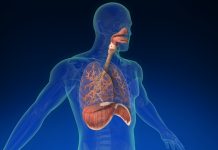Following global cancer prevention recommendations reduces the risk of developing the disease, according to the latest study
Newcastle University experts have analysed the impact of adhering to the 2018 World Cancer Research Fund (WCRF) and American Institute for Cancer Research (AICR) recommendations on lifestyle.
The recently published study in the journal Cancer unveiled compelling findings indicating that adopting a healthier lifestyle, characterised by maintaining optimal body weight and reducing consumption of red meat and processed meats like bacon, significantly reduces the risk of various types of cancer.
Global Cancer prevention recommendations:
- Maintain a healthy body weight
Engage in regular physical activity - Emphasise a diet that includes ample servings of whole grains, vegetables, fruits, and legumes
- Limit the consumption of fast foods and other processed foods that are high in fat, starches, or sugars
- Restrict the intake of red meat and processed meat
- Minimise the consumption of sugary sweetened beverages
- Exercise moderation in alcohol consumption
- Refrain from using supplements for cancer prevention
- If feasible, opt for breastfeeding your baby, particularly for mothers
Following a cancer diagnosis, strive to adhere to the WCRF/AICR Recommendations
Study reveals how lifestyle factors affect Cancer risks
Additional research findings strengthen the link between modifiable lifestyle factors and cancer, indicating that around 40% of all cancer cases are associated with behaviors such as physical inactivity, tobacco use, obesity, unhealthy diet, and alcohol consumption. This suggests that a significant number of cancer cases can be prevented.
Scientists conducting the study discovered that for each incremental increase of 1 point in the adherence score to the Cancer Prevention Recommendations, the risk of developing bowel cancer decreased by 12%, breast cancer risk reduced by 11%, and the likelihood of developing lung cancer decreased by 8%.
Dr. Fiona Malcomson, a lecturer at Newcastle University’s Human Nutrition and Exercise Research Centre, has contributed as a co-author to the study.
“This is the first study to review the evidence to date on the impact of following the latest version of the World Cancer Research Fund and American Institute for Cancer Research Cancer Prevention Recommendations and the risk of developing cancer” she stated.
Dr Malcomson argued that the outcomes of our study are highly encouraging as they offer additional substantiation regarding the most effective methods of lowering the risk of cancer, specifically breast, bowel, and lung cancers.
Importance of following medical recommendations

She believes that following global cancer prevention recommendations has the potential to significantly reduce the chances of developing certain types of cancer and advises people to follow them as much as possible.
The evidence supporting the impact of lifestyle factors on cancer risk is particularly robust for certain types of cancer.
The relationship between red meat and cancer risks
For instance, consuming high amounts of red and processed meat increases the likelihood of developing bowel cancer, while alcohol consumption raises the risk of cancers such as breast, bowel, and esophageal cancer.
Besides modifiable factors, such as lifestyle choices, there are also non-modifiable factors, like family history of cancer and environmental exposures, that can influence an individual’s risk of developing the disease.
In order to examine the link between adherence to the 2018 recommendations and cancer incidence, scientists conducted a comprehensive review and meta-analysis of 18 published studies.
The WCRF/AICR Cancer Prevention Recommendations, formulated by an independent panel of experts, encompass a set of healthy lifestyle choices that collectively have the potential to influence a person’s susceptibility to cancer.














